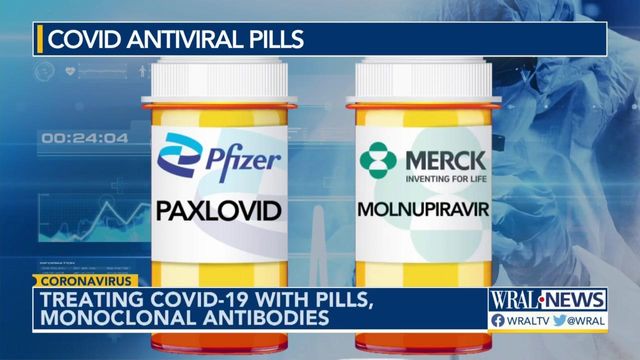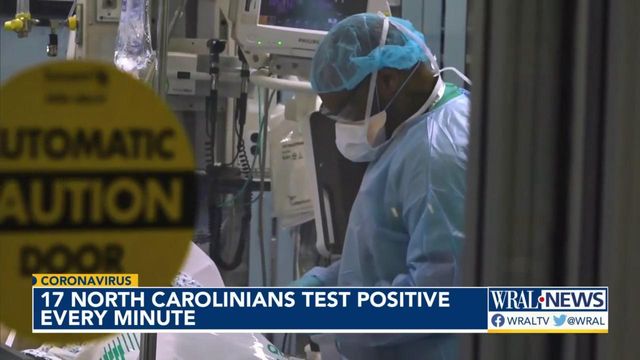Triangle health systems pause use of 2 major monoclonal antibody treatments proven ineffective against omicron
As cases of the omicron variant of COVID-19 surge in North Carolina, three major local health care systems have stopped using two major monoclonal antibody treatments used to fight the virus.
The antibody treatments, from Regeneron and Eli Lilly, are not effective against fighting coronavirus' omicron variant, according to the U.S. Department of Health and Human Services.
"We’ve had two monoclonal antibodies that have been workhorses for us," said Dr. David Wohl, an infectious disease physician at UNC Health. "Unfortunately, laboratory studies indicate and predict they will not work well against omicron.”
The state Department of Health and Human Services said this week they are no longer receiving Regeneron and Eli Lilly antibody treatments from the federal government and are not distributing them to local hospitals.
The antibody treatment that is effective against omicron, sotrovimab by GlaxoSmithKline, is in very short supply, according to hospital officials.
This week, North Carolina received 978 treatment courses of sotrovimab from the federal government, which is not nearly enough to keep hospitals to meet meet the demand of hospitals and monoclonal antibody clinics. On Friday, North Carolina hospitals had more than 3,500 individuals being treated for COVID-19.
A month ago, North Carolina gave out on average 3,700 antibody treatments each week in December.
"Duke received a shipment of 48 doses [of sotrovimab] from NCDHHS yesterday," said a spokesperson at Duke Health. "We do not expect this allocation to last very long."
Hospital officials with UNC Health echoed the same concerns, and said there is a "limited supply that's dwindling quickly."
A spokesperson with WakeMed said that they have stopped administering Regeneron and Eli Lilly antibody treatments at their local monoclonal antibody clinics.
"As true with all administration sites, we will run out soon," the spokesperson said.
Kody Kinsley, North Carolina's new secretary of Health and Human Services, said that the state found that more than 80% of recently sequenced coronavirus cases were the coronavirus' omicron variant. Moving forward, he expects almost all new cases to be omicron.
"That has crowded out all the other variants. It's safe to assume as we move forward that pretty much every positive we are seeing is omicron," Kinsley said during a press conference on Tuesday.
There is another treatment that the state is sending out to help curb the severity of omicron. North Carolina has been allocated 1,620 courses of Pfizer's pill paxlovid and 7,580 courses of Merck's molnupiravir. Both pills are prescribed within five days of symptoms.
People who are prescribed paxlovid have to take three pills, two times a day for five days. That totals 30 pills. Patients who are given molnupiravir have to take four pills, two times a day for five days.
"I don’t understand why the production of these medications isn’t more plentiful, and why we have to wait weeks or months to get the supplies we need to get people safe," Wohl said.
Dr. Cameron Wolfe, an infectious disease expert with Duke Health warned last week that the latest variant would likely overwhelm hospitals due to the lack of treatment.
Wolfe said that he and his colleagues are "highly nervous at this point of what that will mean for the next two weeks."
"I really want people to understand what we've faced here," he said. "Because I think it's been somewhat miscommunicated how mild this omicron variant has been. It may be a little more mild for individual cases. But it has not been mild from a hospital point of view because of the sheer volume of people getting sick."
The majority of people currently hospitalized in North Carolina are unvaccinated, according to state data. At all WakeMed hospitals, only 1 in 10 ICU patients are fully vaccinated, and at Duke, all the patients on ECMO, a form of life support used for only the sickest patients, are unvaccinated.
Officials with UNC Health said they will keep its appointments booked through the weekend and officially stop offering the two ineffective treatments on Monday.












